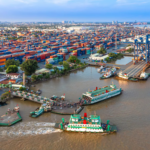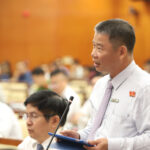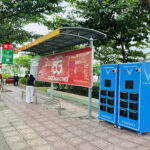Ho Chi Minh City’s International Financial Center (IFC) is taking shape, with operations set to commence in December 2025. Beyond infrastructure and personnel preparations, the city has forged partnerships with leading global financial institutions for investment and workforce training.
Ho Chi Minh City Ready to Launch IFC in December
Currently, Ho Chi Minh City is advancing IFC-related projects, including the renovation of its headquarters at 8 Nguyen Hue Street, Saigon Ward, serving as a temporary base until the Thu Thiem new urban area facility is completed.
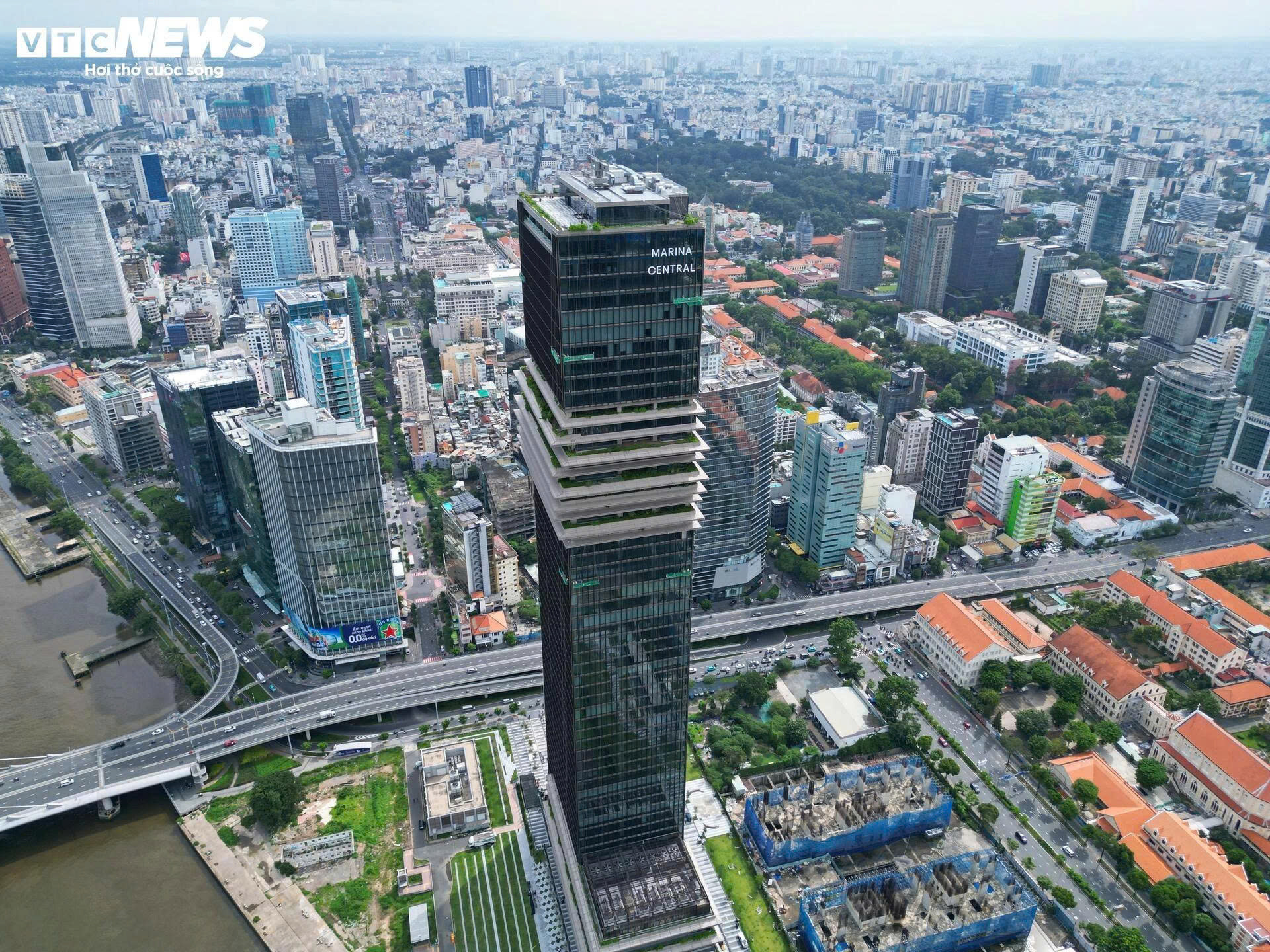
In late August, the 55-story Saigon Marina Financial Tower in Ba Son became the first operational project in Ho Chi Minh City’s IFC development.
The city has also introduced policies to attract infrastructure investment in the 9.2-hectare core area of Thu Thiem, encompassing administrative, management, supervisory, and judicial facilities.
Experienced financial professionals are being trained abroad to operate the IFC, while a partnership with the Vietnamese-German University aims to cultivate a skilled local workforce.
During the October government meeting, Deputy Prime Minister Nguyen Hoa Binh announced that IFC-related decrees would be issued in November. He urged Ho Chi Minh City to finalize preparations for the center’s launch, emphasizing close collaboration with Da Nang to ensure seamless decree implementation.
At the same meeting, Ho Chi Minh City Mayor Nguyen Van Duoc confirmed the city’s readiness, anticipating the IFC’s launch in December following National Assembly approval and government decree issuance.
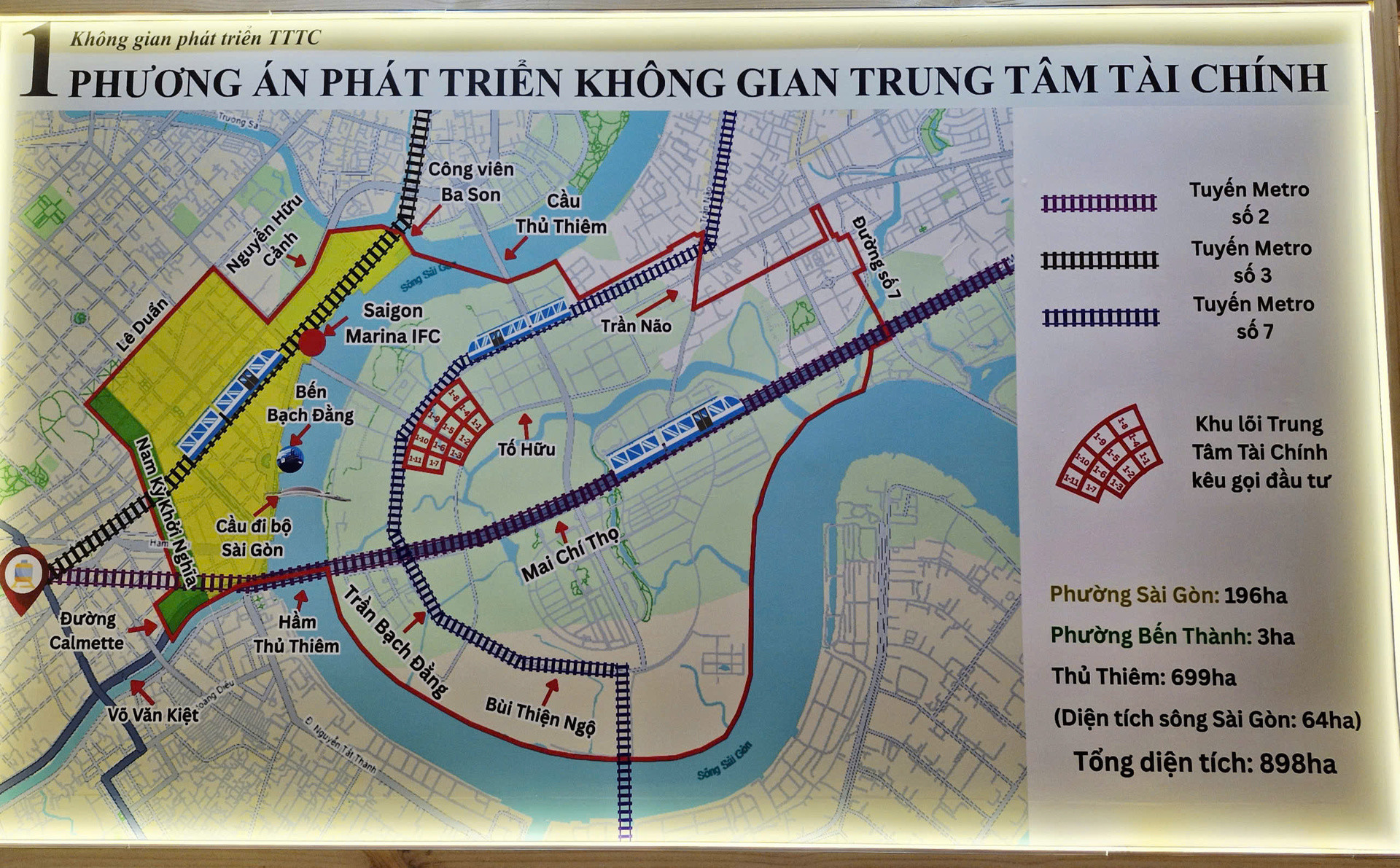
The IFC in Ho Chi Minh City spans nearly 900 hectares across Thu Thiem, Saigon Ward, Ben Thanh Ward, and the Saigon River area. (Source: Ho Chi Minh City Department of Finance)
Dr. Phan Duc Hieu, Standing Member of the National Assembly’s Economic and Financial Committee, highlighted the significance of the IFC resolution, approved in June. He noted the unique “one center, two destinations” model, with Ho Chi Minh City and Da Nang serving distinct financial roles.
Ho Chi Minh City will focus on large-scale financial markets, including securities, bonds, banking, and fund management, while Da Nang will specialize in logistics, maritime, free trade, and agro-industrial supply chain services.
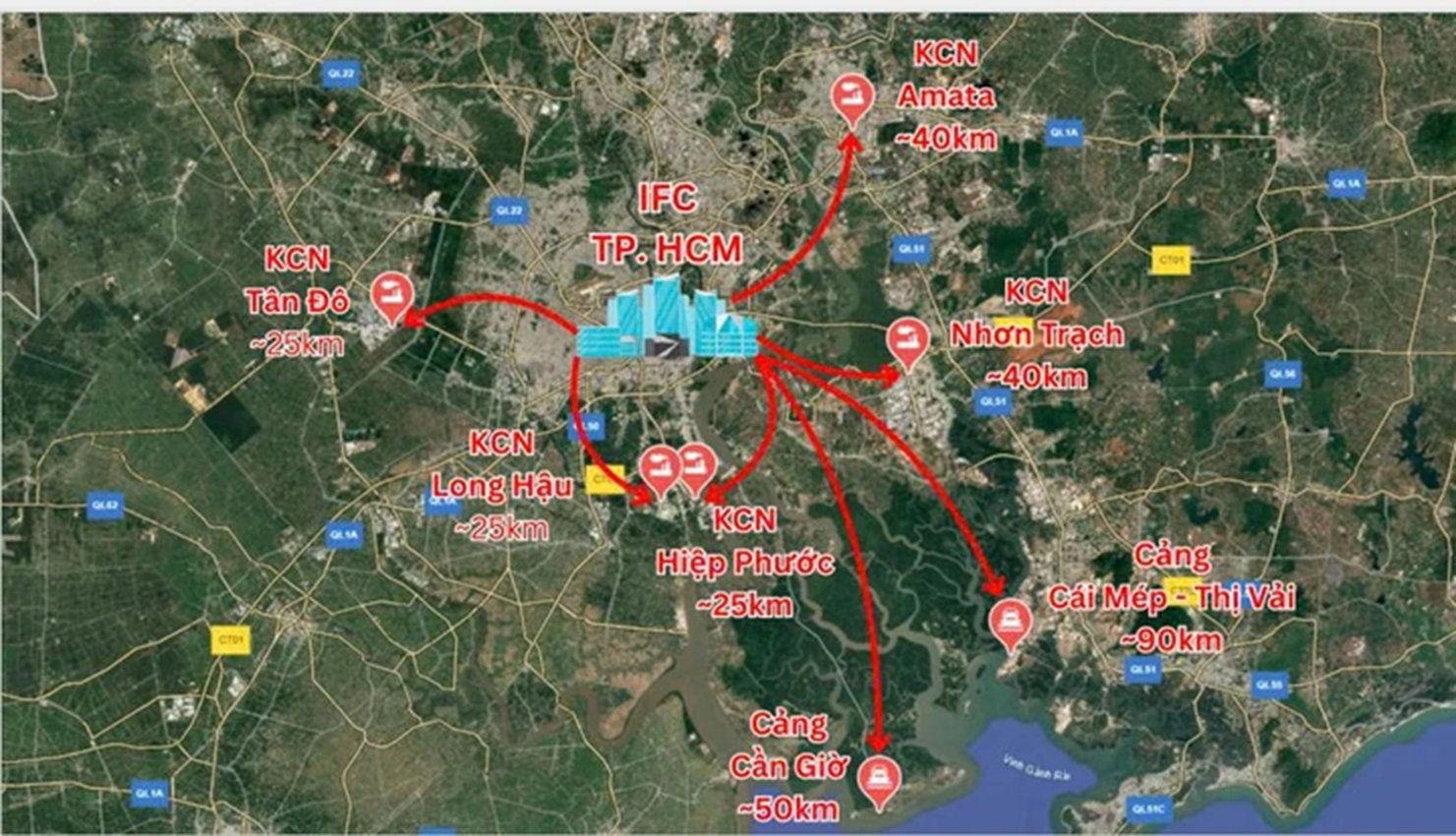
The Ho Chi Minh City IFC is strategically connected to major production hubs in the Southeast region, seaports, and international airports. (Source: Ho Chi Minh City Department of Finance)
“As a supporter of the IFC establishment, I eagerly await its launch. This initiative aims to create a competitive investment environment, attracting not only foreign but also domestic investors,” Dr. Hieu remarked.
Ho Chi Minh City’s Year-Long IFC Preparation
Since early 2024, Ho Chi Minh City has implemented comprehensive measures to develop the IFC, focusing on institutional frameworks, policies, and resource mobilization. Numerous consultations and investment forums have been held to share expertise.
Following the Ho Chi Minh City Party Congress in October, Mayor Nguyen Van Duoc led a delegation to the U.S., securing partnerships to establish a leading regional IFC.
The Ho Chi Minh City Department of Finance signed an MoU with Nasdaq, focusing on market development, cross-listing, legal frameworks, fintech, and workforce training.
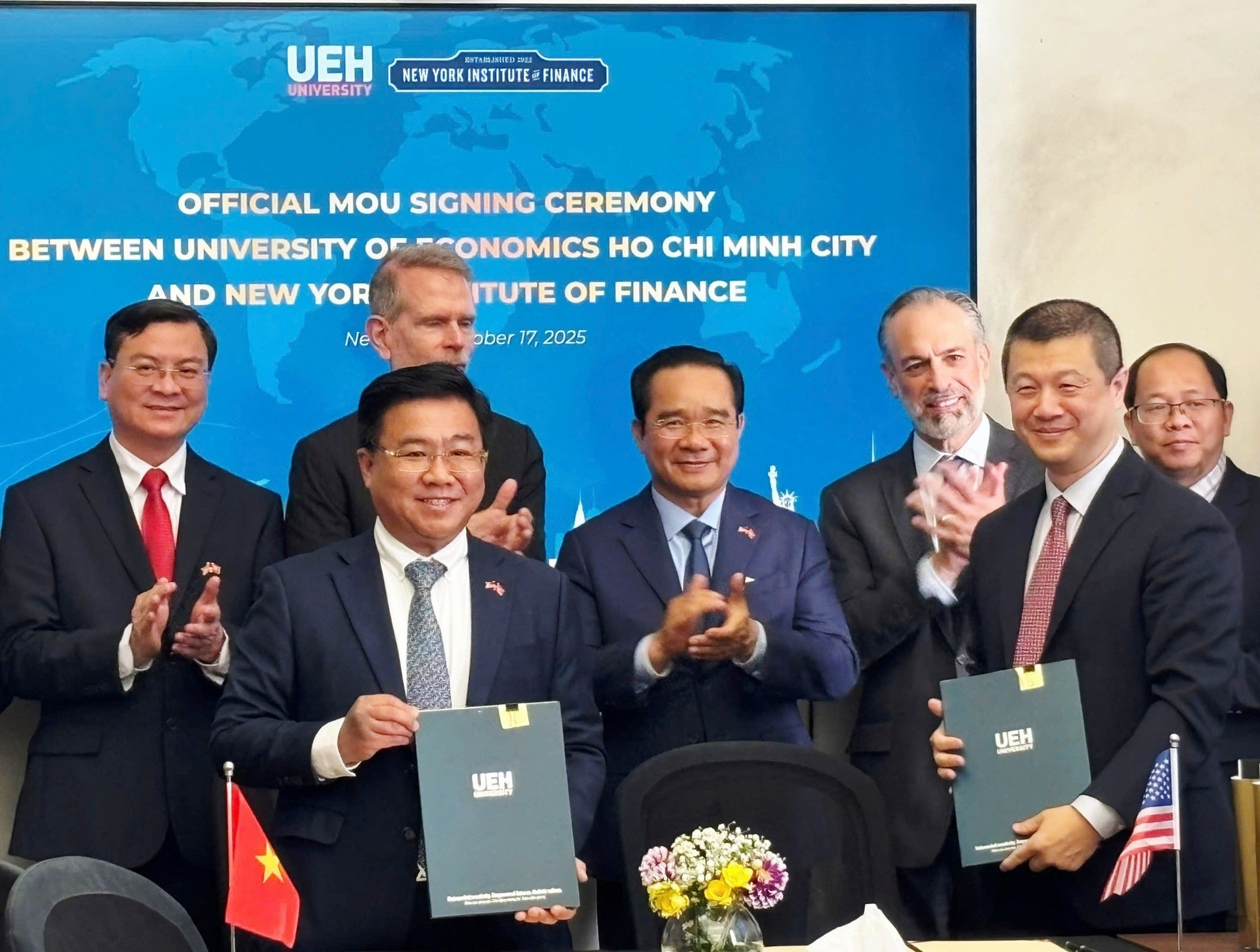
Ho Chi Minh City’s delegation, led by Mayor Nguyen Van Duoc, at the strategic cooperation signing ceremony between the University of Economics Ho Chi Minh City and the New York Institute of Finance for IFC workforce training.
The University of Economics Ho Chi Minh City also partnered with the New York Institute of Finance to offer international financial training programs, aiming to develop experts and leaders for the IFC.
Mr. Hoang Vu Thanh, Deputy Director of the Ho Chi Minh City Department of Finance, outlined key initiatives to operationalize the IFC.
Regarding legal frameworks, the city has provided detailed input on all eight IFC-related decrees, seven of which have been reviewed. The residency and immigration decree, led by the Ministry of Public Security, is under consultation.
Additionally, Ho Chi Minh City is drafting IFC operational regulations in collaboration with Da Nang for immediate implementation upon legal completion.
The Ho Chi Minh City Institute for Development Studies and the Department of Home Affairs are developing organizational and personnel plans, while the Departments of Construction and Planning & Architecture are accelerating infrastructure preparations.

The 9.2-hectare Thu Thiem core area, comprising 11 plots for administrative and judicial facilities, is under investment preparation.
The Department of Science and Technology is developing the Ho Chi Minh City IFC digital platform, integrating membership registration and connectivity with Da Nang’s IFC to enhance transparency and investor convenience.
Mayor Nguyen Van Duoc emphasized the IFC’s role in attracting capital, fostering innovation, advancing technology, and enhancing national competitiveness and global integration.
The IFC will also improve resource allocation, expand capital access for businesses, and strengthen Vietnam’s position in the global financial and trade network.
Ho Chi Minh City is committed to ensuring the IFC’s success.
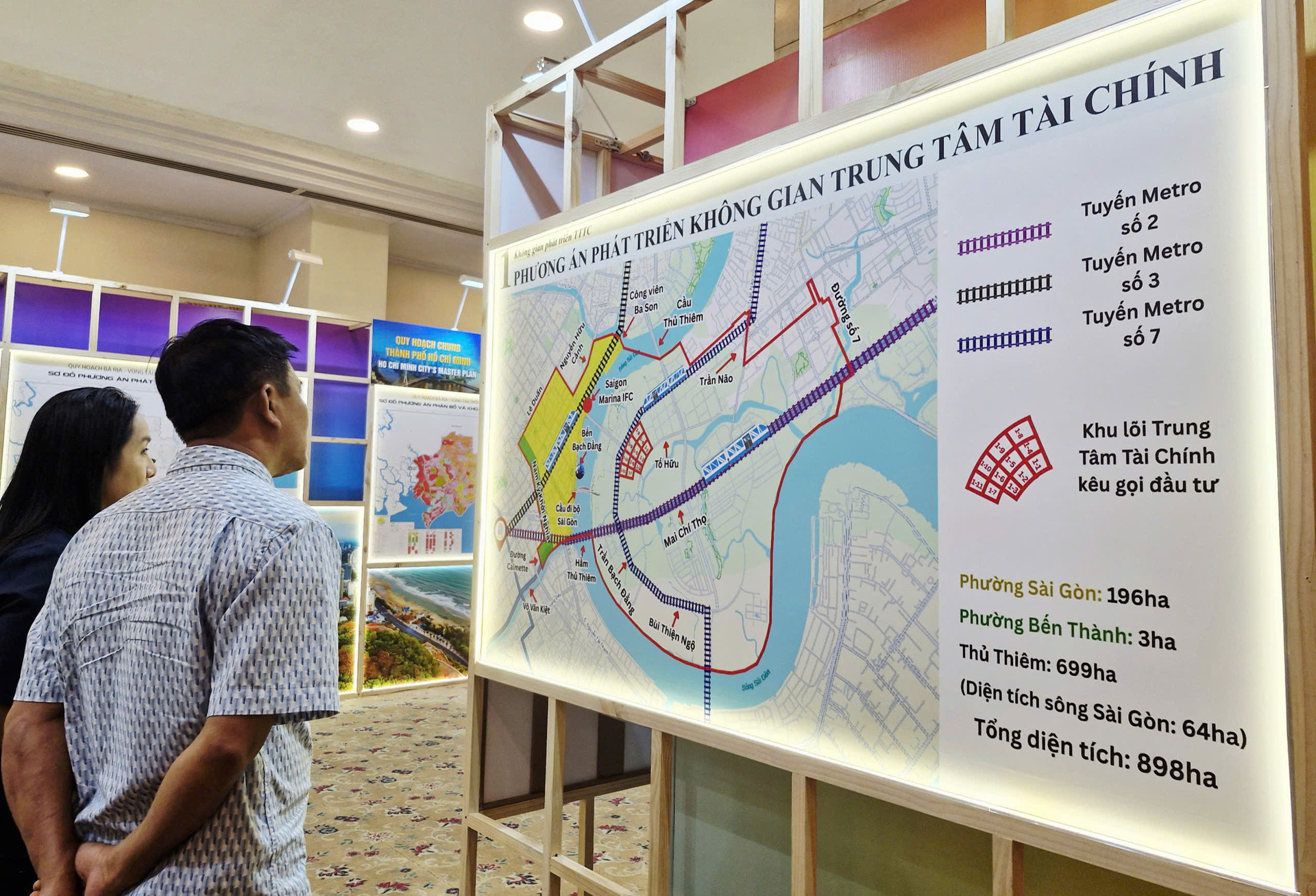
Residents and businesses in Ho Chi Minh City are closely following the IFC’s investment and operational roadmap.
The IFC in Ho Chi Minh City covers approximately 899 hectares in Ben Thanh Ward, Saigon Ward, Thu Thiem, and 64 hectares along the Saigon River.
The city estimates an initial investment of 172 trillion VND (7 billion USD), with 16 trillion VND allocated for the Thu Thiem core area infrastructure over the next 2-3 years.
Ho Chi Minh City Aims for VND 800 Trillion in Budget Revenue by 2025
Ho Chi Minh City aims to generate VND 800 trillion in revenue by 2025, addressing the anticipated budget shortfall for the 2026-2030 period through innovative solutions in taxation, land management, and public investment.
Ho Chi Minh City Sets Groundbreaking Date for Ben Thanh – Can Gio Metro Line
At the Steering Committee meeting on November 14th, Party Secretary Tran Luu Quang announced that Ho Chi Minh City will commence construction on the Ben Thanh – Can Gio metro line on December 19th. He urged relevant departments to concurrently address tasks, preventing delays and bottlenecks in coordination, to ensure the timely completion of key metro projects before 2030.
Revived Real Estate Market in Ho Chi Minh City: A Legal Minefield for the Uninformed
Northern investors are increasingly eyeing the Ho Chi Minh City real estate market. However, disparities in legal frameworks, urban planning, and market dynamics can lead to unmet expectations for those unfamiliar with the Southern landscape. Understanding the local “rules of the game” is crucial for success in this vibrant market.
AIC’s Dominance: Securing 230 Contracts in Ho Chi Minh City
The AIC case in Ho Chi Minh City has exposed how a company can manipulate public procurement processes with insider complicity.
Ho Chi Minh City Chairman Addresses $430 Million Flood Control Project and Rail Link to Long Thanh Airport
The Chairman of the Ho Chi Minh City People’s Committee announced that the Standing Committees of the Ho Chi Minh City Party Committee and the Dong Nai Provincial Party Committee recently convened and reached agreements on numerous inter-regional transportation connectivity projects. These initiatives encompass both rail and road infrastructure, as well as bridge connections between the two localities.

